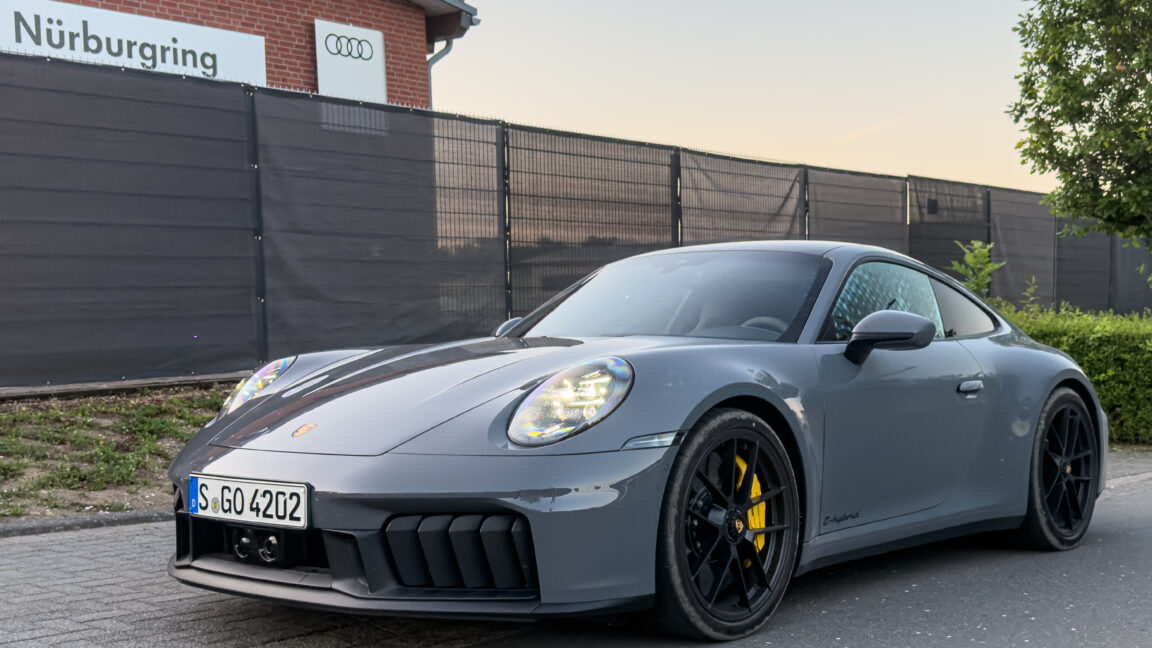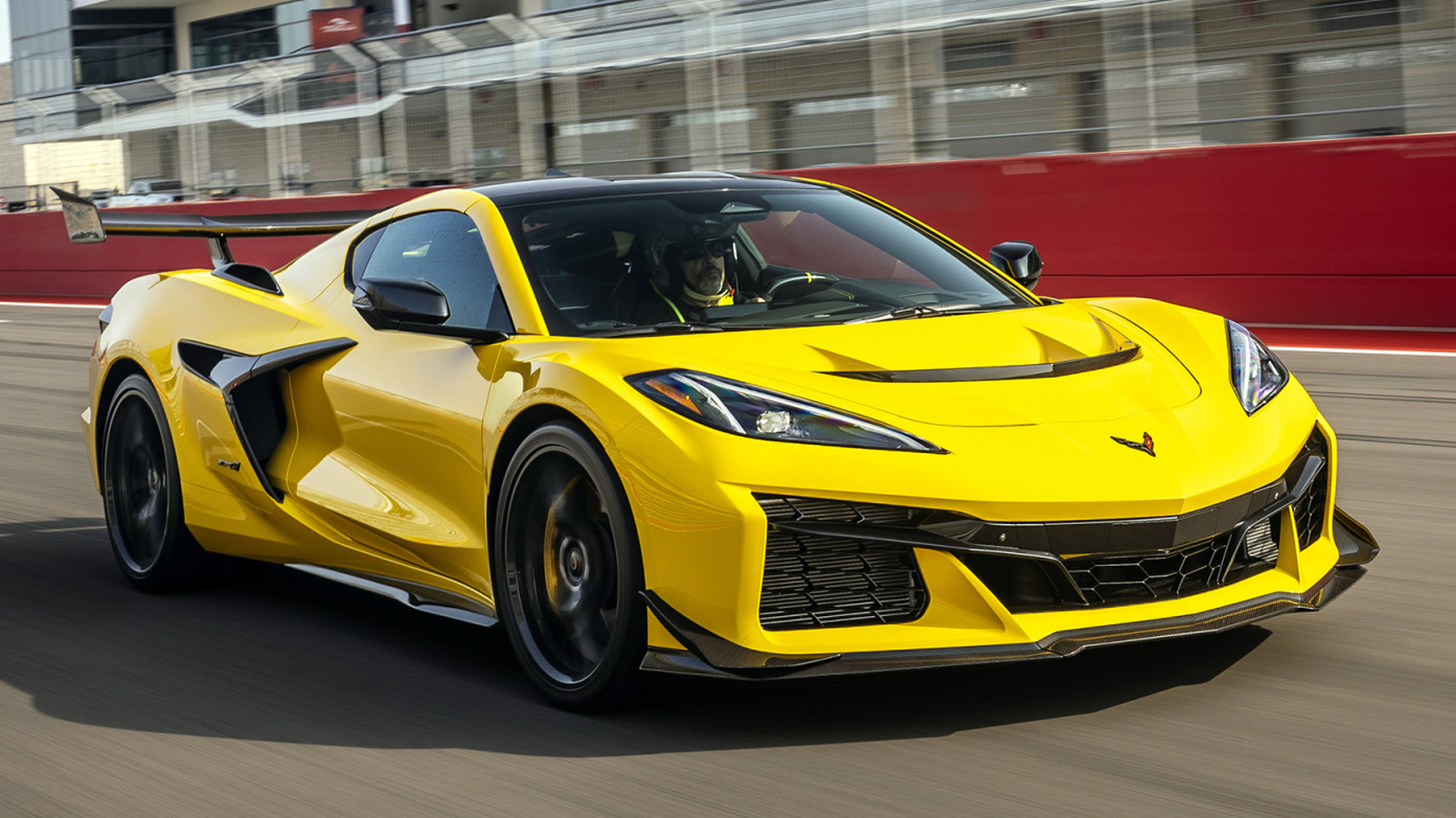Porsche 911 Turbo S: The Ultimate Sports Car
Introduction
The Porsche 911 Turbo S is the ultimate sports car, and it has just gotten even better. At the IAA Mobility motor show in Munich, Porsche unveiled the top-of-the-range model of the 911 series, equipped with an innovative twin-turbo powertrain and T-Hybrid technology. This makes the new 911 Turbo S the most powerful production 911 to date, solidifying its position as the superior all-rounder among sports cars.
Key Details
The new Porsche 911 Turbo S boasts a 3.8-liter twin-turbo flat-six engine, producing a whopping 650 horsepower and 590 lb-ft of torque. This power is seamlessly transferred to all four wheels through an eight-speed PDK dual-clutch transmission, allowing the car to accelerate from 0-60 mph in just 2.6 seconds. The T-Hybrid technology also adds an electric motor to the mix, providing an extra 40 horsepower and increased fuel efficiency.
Impact
With its impressive performance, the Porsche 911 Turbo S is not just a straight-line speed demon. It also boasts exceptional handling, thanks to its active aerodynamics, rear-axle steering, and adaptive suspension. This makes it the perfect car for both track days and daily driving. Furthermore, the interior is luxurious and technologically advanced, making the driving experience even
About the Organizations Mentioned
Porsche
Porsche AG, officially Dr. Ing. h.c. F. Porsche AG, is a globally renowned German automotive manufacturer headquartered in Stuttgart, Germany. Founded on April 25, 1931, Porsche has built a legacy as a leader in high-performance sports cars, luxury SUVs, and cutting-edge automotive technology. Synonymous with engineering excellence, innovation, and a rich racing heritage, Porsche’s iconic models—most notably the 911—have become symbols of power, precision, and prestige. The company operates in over 120 countries and serves premium automotive, sports, and crossover markets, while also expanding into e-commerce with its merchandise line. In 2023, Porsche reported €40.5 billion in revenue and a profit after tax of €7.28 billion, employing over 41,000 people worldwide. Its main competitors include Mercedes-Benz, Ferrari, Tesla, and other luxury brands. Porsche’s achievements are marked by consistent innovation and market leadership. The brand has set numerous sales records, with robust global demand and a strong presence in North America, Europe, and emerging markets. In 2025, Porsche delivered over 212,500 vehicles worldwide, with electrified models accounting for 35.2% of deliveries—23.1% fully electric and 12.1% plug-in hybrids. Notably, the Macan SUV saw an 18% increase in deliveries, and the U.S. market reported a 5.6% year-over-year rise in retail sales. In response to shifting market dynamics, Porsche is realigning its product strategy, supplementing its lineup with new combustion and plug-in hybrid models while rescheduling the launch of certain all-electric vehicles. This strategic move aims to ensure long-term profitability, brand exclusivity, and adaptability in a rapidly evolving automotive landscape. With a loyal customer base, a renewed product portfolio
IAA Mobility
## Overview IAA Mobility—formerly known as the Internationale Automobil-Ausstellung (IAA), or International Motor Show—is one of the world’s leading platforms for the automotive industry, focused on mobility innovation, technology, and the future of transportation[3]. Today, it is not just an auto show but a global summit where automakers, technology providers, policymakers, and consumers converge to discuss and showcase the latest developments in mobility, from electric and autonomous vehicles to software-defined platforms and sustainable transport solutions[4]. ## History The IAA traces its roots back to 1897, when the first exhibition was held at the Hotel Bristol in Berlin, featuring just eight motor vehicles[2][3]. Initially a modest event, it quickly grew in scale and reputation as automobiles became more accessible and technologically advanced. For much of the 20th century, the show alternated between Berlin and Frankfurt, before settling in Frankfurt from 1951 to 2019[1]. In 2021, the event was rebranded as IAA Mobility and moved to Munich, reflecting a broader focus beyond traditional automobiles to embrace the entire mobility ecosystem[1][3]. ## Key Achievements Over its history, IAA has been the stage for numerous industry milestones. It hosted the debut of the Volkswagen Beetle in 1939 and has consistently showcased breakthroughs in vehicle safety, comfort, and efficiency[1][3]. In the modern era, it has become a hub for electrification, connectivity, automated driving, and AI-driven mobility solutions, with major OEMs and tech firms unveiling their latest innovations[4]. The 2025 edition, for instance, emphasized software-defined vehicles, AI integration, and the importance of collaboration across hardware, software, and cloud infrastructure to enable the next generation of smart, updatable vehicles[4]. ## Current Status As of 2025, IAA Mobility is held biennially in Munich, transforming the city into a global automotive






